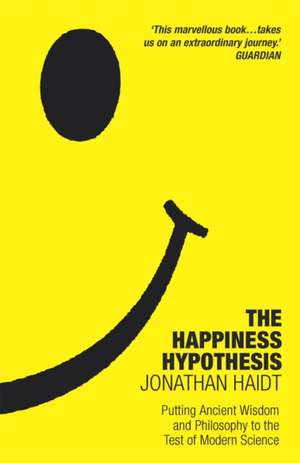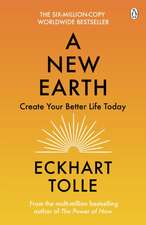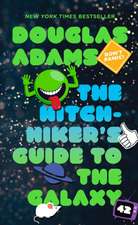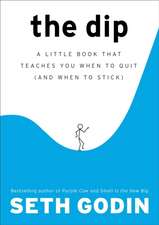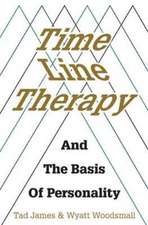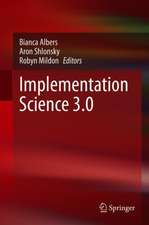The Happiness Hypothesis
Autor Jonathan Haidten Limba Engleză Paperback – 7 ian 2021
| Toate formatele și edițiile | Preț | Express |
|---|---|---|
| Paperback (2) | 58.21 lei 23-34 zile | +20.56 lei 6-10 zile |
| CORNERSTONE – 7 ian 2021 | 58.21 lei 23-34 zile | +20.56 lei 6-10 zile |
| BASIC BOOKS – 25 dec 2006 | 108.87 lei 3-5 săpt. |
Preț: 58.21 lei
Preț vechi: 69.63 lei
-16% Nou
Puncte Express: 87
Preț estimativ în valută:
11.15€ • 11.43$ • 9.38£
11.15€ • 11.43$ • 9.38£
Carte disponibilă
Livrare economică 07-18 februarie
Livrare express 21-25 ianuarie pentru 30.55 lei
Preluare comenzi: 021 569.72.76
Specificații
ISBN-13: 9781847943064
ISBN-10: 1847943063
Pagini: 320
Dimensiuni: 125 x 193 x 27 mm
Greutate: 0.22 kg
Editura: CORNERSTONE
ISBN-10: 1847943063
Pagini: 320
Dimensiuni: 125 x 193 x 27 mm
Greutate: 0.22 kg
Editura: CORNERSTONE
Notă biografică
Jonathan Haidt Jonathan Haidt is the Thomas Cooley Professor of Ethical Leadership at New York University's Stern School of Business. He is a social psychologist whose research examines morality and the moral emotions. He is the author of The Righteous Mind: Why Good People are Divided by Politics and Religion, and the co-author of The Coddling of the American Mind: How Good Intentions and Bad Ideas are Setting Up a Generation for Failure.
Recenzii
"An
erudite,
fluently
written,
stimulating
reassessment
of
age-old
issues."—Publishers
Weekly,
starred
review
"An erudite, fluently written, stimulating reassessment of age-old issues."—Publishers Weekly, starred review
"[An]
inspiring
nuanced
study."
—People"[A]
marvelous
book....
I
don't
think
I've
ever
read
a
book
that
laid
out
the
contemporary
understanding
of
the
human
condition
with
such
simple
clarity
and
sense."
—Guardian,(UK)"This
unusual
book
sets
itself
apart
from
the
self-help
category
with
its
extensive
scientific
references,
and
intelligent,
neutral
prose,
while
the
author's
illuminating
illustration
of
how
the
human
mind
works
is
both
educational
and
refreshing."
—Sunday
Times(London)"With
singular
gusto,
Haidt
measures
ten
'Great
Ideas'
against
past/present
research
in
psychology
and
science.LJ's
verdict:
Dr.
Phil
et
al.
don't
have
diddly
on
the
old-school
sages.
No
man
is
an
island,
indeed,
and
no
modern
reader
should
be
without
this
carefully
considered
demystification
of
life."
—Library
Journal,
Best
Books
2006"This
is
a
delightful
book....
Haidt's
writing
embraces
spiritual
and
mystical
viewpoints
while
retaining
scientific
and
rational
coherence."
—Nature"A
disarming,
original
book,
reassuring
to
those
more
conversant
with
worriment
than
merriment....
Smart
and
serious
without
pomposity."
—Seattle
Times"Haidt's
remedy
for
the
modern
glut
of
frivolous
self-help
literature
is
to
review
and
revise
the
classics,
examining
the
ideas
of
thinkers
like
Plato,
Buddha
and
Jesus
in
light
of
modern
research
into
human
behavior.
Along
the
way,
Haidt,
a
social
psychologist,
provides
practical
advice
for
parenting,
romance,
work
and
coping
with
the
political
and
cultural
divisions
currently
preoccupying
the
country."
—Psychology
TodayThe
Happiness
Hypothesisis
a
wonderful
and
nuanced
book
that
provides
deep
insight
into
the
some
of
the
most
important
questions
in
life--Why
are
we
here?
What
kind
of
life
should
we
lead?
What
paths
lead
to
happiness?
From
the
ancient
philosophers
to
cutting
edge
scientists,
Haidt
weaves
a
tapestry
of
the
best
and
the
brightest.
His
highly
original
work
on
elevation
and
awe--two
long-neglected
emotions--adds
a
new
weave
to
that
tapestry.
A
truly
inspiring
book."
—David
M.
Buss,author
ofThe
Evolution
of
Desire:Strategies
of
Human
Mating"This
fresh
and
original
book
goes
to
the
heart
of
what
people
have
found
out
about
happiness,
across
cultures
and
times.
Enjoyable,
important,
and
eminently
readable."
—Mihaly
Csikszentmihalyi,author
ofFLOW"Jonathan
Haidt
leaves
no
doubt
about
the
importance
of
emotion
in
the
creation
of
personal
meaning.
This
is
a
delightful
and
courageous
book."
—Antonio
Damasio,author
ofLooking
for
Spinoza"In
this
beautifully
written
book,
Jonathan
Haidt
shows
us
the
deep
connection
that
exists
between
cutting-edge
psychological
research
and
the
wisdom
of
the
ancients.
It
is
inspiring
to
see
how
much
modern
psychology
informs
life's
most
central
and
persistent
questions."
—Barry
Schwartz,author
ofThe
Paradox
of
Choice:
Why
More
Is
Less"Should
we
live
our
lives
by
age-old
wisdom
or
the
latest
discoveries?
Haidt
gives
us
the
luxury
of
not
having
to
choose,
bringing
together
both
sources
of
insight
in
this
sparkling
investigation
into
the
psychology
of
life
and
happiness."
—Daniel
Wegner,author
ofThe
Illusion
of
Conscious
Will"It
would
be
something
of
an
exaggeration
to
say
that
Jonathan
Haidt
has
found
the
final
answer
to
happiness,
but
he
has
come
as
close
as
any
other
writer
of
our
times.
Every
page
of
his
book
provides
gems
of
insight
about
the
good
life
and
where
to
look
for
it.
Anyone
who
is
interested
in
humannature
and
its
potential
must
read
this
book."
—William
Damon,
Director,
Stanford
Center
on
Adolescence,and
author
ofThe
Moral
Child"An
intellectual
tour
de
force
that
weaves
into
one
fabric
wisdom
that
is
ancient
and
modern,
religious
and
scientific,
Eastern
and
Western,
liberal
and
conservative
all
with
the
aim
of
pointing
us
to
a
more
meaningful,
moral,
and
satisfying
life."
—David
G.
Myers,
Professor
of
Psychology,
Hope
College,author
ofIntuition:
Its
Powers
and
Its
Perils"The
Happiness
Hypothesis...
has
more
to
say
about
the
pleasures
and
perils,
thetruths,of
being
alive
than
any
book
I've
read
in
a
long
time."
—San
Francisco
Bay
Guardian"Haidt's
is
an
open-minded,
robust
look
at
philosophy,
psychological
fact
and
spiritual
mystery,
of
scientific
rationalism
and
the
unknowable
ephemeral--an
honest
inquiry
that
concludes
that
the
best
life
is,
perhaps,
one
lived
in
the
balance
of
opposites."
—Bookpage"An erudite, fluently written, stimulating reassessment of age-old issues."—Publishers Weekly, starred review
